Updates, News & Resources

Bolton Virtual School Conference (The Power Of One Experience) – January 2024
For the very first time Bolton’s Virtual School are hosting The Power Of One Experience in January 2024! Introducing “Drip By Drip Day By Day” – an exclusive event will be opened by Steven Russell, who draws from his personal journey through the care system, merging 16 years of professional care expertise with 18 years of his own childhood. We are hoping by the end of this event, you will depart feeling inspired, impacted, influenced and informed. In the afternoon will hear stories from kinship carers and the charity Kinship who have some exciting news and support available for children within kinship care!
The conference is running over two days, Tuesday 30th and Wednesday 31st January 2024, the agenda will be the same on both days – please book on for one day only! This experience is available to any professional who works with children with a Social Worker or those living within kinship care including those who work within Education, Children’s Services and Health. Bolton Governors and Trustees are welcome!
The poster attached (right) provides further information. The conference starts at 9am until 4:30pm, lunch will be provided and there will be a marketplace to meet with local services and providers. We have spaces for 400 delegates across the two days and hope the event will have a real impact on practice. To book your place please complete the google form below. If you have any questions please contact Bolton’s Virtual School. [ BOOK NOW ]
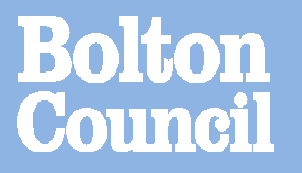
Bolton LA Seeking Governors to sit on School Exclusion Appeal Panels
The Bolton Local Authority Democratic Services Team are seeking to recruit additional Panel members for School Exclusion Appeal Hearings. These may be current or former school governors (of a maintained school, members of a PRU management committees and directors of academy trusts) who have served as a governor for at least 12 consecutive months in the last five years, provided they have not been teachers or headteachers during that time. Training will be provided, and payment is made for each hearing.
Parents and guardians have the right to lodge an appeal when a Governing Body of a School / Academy has made a decision to excluded their child from school.
The skills you should have include – the ability to impartially listen and evaluate arguments and evidence presented by both sides, decisiveness as decisions are made the same day and flexibility as Appeal Hearings are generally heard during working hours.
Please contact Ian Mulholland, Deputy Democratic Services on ian.mulholland@bolton.gov.uk to arrange an informal chat.

Bolton LA Seeking Governors to sit on School Admissions Appeal Panels
The Bolton Local Authority Democratic Services Team are seeking to recruit additional Panel members for School Admissions Appeal Hearings. Training will be provided, and payment is made for each day and half day.
Parents and guardians have the right to lodge an appeal when the Local Authority or Governing Body of a School / Academy has refused an application to admit a child. Bolton Council are responsible for arranging Independent Appeals Panels to hear these appeals for maintained schools and also arrange appeals for Academies, Foundation Schools and VA Schools across the Bolton area.
Appeals are heard by a Panel of trained volunteers, who are supported by an independent Clerk.
New volunteers are encouraged to join those who already make a valuable contribution to the appeals service. Please contact Ian Mulholland, Deputy Democratic Services on ian.mulholland@bolton.gov.uk to arrange an informal chat.
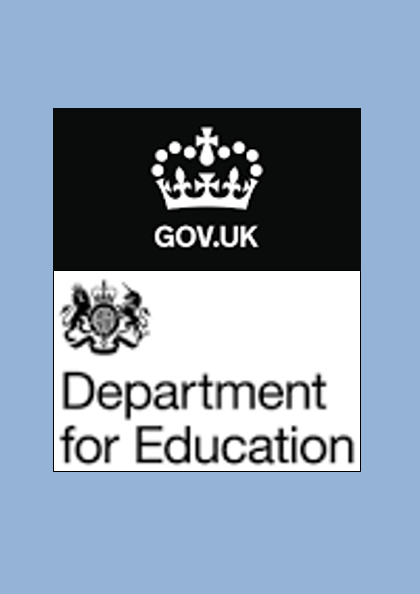
DfE calls governors and trustees to help drive up attendance
The Minister for Schools, Damian Hinds MP has written to governors and trustees thanking them for their dedication to making schools and trusts a great place for children to learn and ensuring they attend school.
The letter asks governing boards to support the Department’s new attendance campaign which reminds parents that moments matter, attendance counts, setting out practical steps governors can take to encourage good attendance.
The letter can be found via the NGA website using the following LINK
The press release is available via www.gov.uk website, using the following LINK
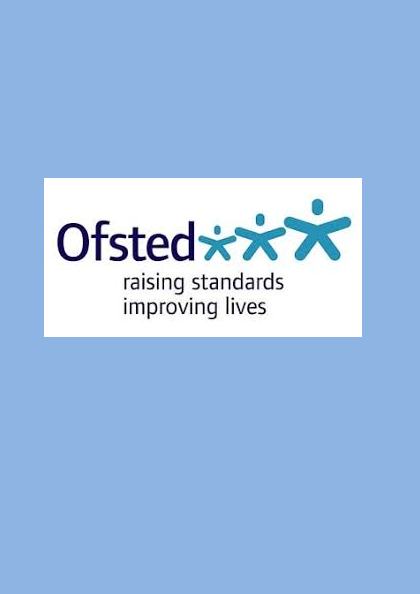
Sir Martyn Oliver begins term as HMCI
The new His Majesty’s Chief Inspector, Sir Martyn Oliver, begins with an immediate package of training for inspectors, a response to the Ruth Perry inquest and a Big Listen.
Ofsted has announced that school inspections will resume later in January in order for inspectors to undertake training on mental health and wellbeing. The training aims to help inspectors identify signs of stress and anxiety of leaders and staff during inspections and take steps to support them.
Sir Martyn also stated that his immediate priority is to respond to the concerns of the coroner’s inquest into the death of Ruth Perry and take time to “listen- to parents, to professionals in the sectors we work with, and to people with an interest in our work”
The full press release can be found via the www.gov.uk website using the following LINK

Guidance and Consultation on Supporting Gender-Questioning Pupils
The government has issued non-statutory gender questioning children draft guidance for schools. The guidance aims to support schools and colleges, emphasising the duty to safeguard and promote the welfare of all children, urging a cautious approach to requests for social transition.
The guidance highlights the importance of respectful environments, parental involvement, and the need for schools to actively consult on the draft guidance – the consultation will run for 12 weeks, closing on 12 March. The guidance highlights the significance of safety and fairness in sports, maintaining single-sex spaces, and considering alternatives where needed.
Schools and trusts are encouraged to actively participate in the consultation process to ensure that their views are heard and taken into account. Further information on the draft guidance, as well as how you can contribute to the consultation can be found by visiting the www.gov.uk website using the following links:
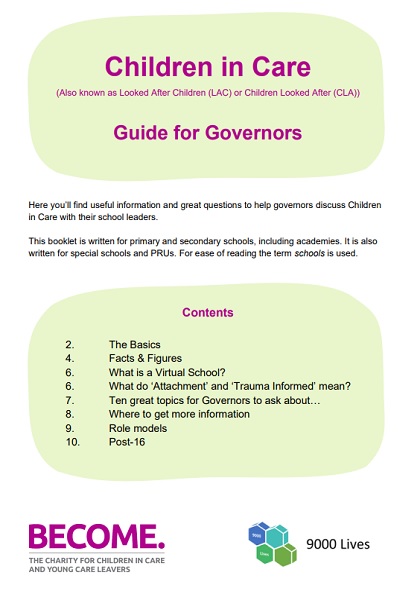
BECOME – Children in Care: Guide for Governors & Trustees
BECOME, a charity for children in care and young care leavers, in partnership with Aaron King (9000 Lives.org) have created a Children in Care, Guide for school governors and trustees.
This is a short handbook that tells governors and trustees what they need to know about children in care (CIC). It explains the basics quickly and clearly, as well as giving sensible questions for governors to ask of their leaders.
The guide brings together the latest knowledge from both a national charity and local school perspective, it covers CIC from EYFS classes all the way up to Year 13. It applies to both academies and local authority schools.
BECOME use the term ‘children in care’ (or CIC for short). However, these same pupils are sometimes described as Looked After Children (LAC) or Children Looked After (CLA).
The guidance can be gained directly from the BECOME charity website, using the following LINK
Bolton Family Hubs Launch
The first Bolton Family Hubs will open their doors with five launch events taking place across the borough from September 30 to October 14. The sessions will herald the first wave of what will eventually be a network of eight Bolton Family Hubs which will be open by March 2025.
The hubs will provide joined up services supporting families with children up to the age of 19 years old, and up to 25 years for those with Special Educational Needs and Disabilities. The hubs will help ensure families have the knowledge, skills, and support to best care for their children, as well as looking after their own health and wellbeing.
The free drop-in sessions will feature fun activities, including face-painting, freebies, refreshments. Families will also be able to have their say on how the hubs should be developed and help design the Bolton Family Hub branding.
The new hubs are a result of Bolton being one of 75 local authorities to receive a share of the Government’s £302m Family Hub and Start for Life fund. The hubs are being delivered in partnership by the Council, Greater Manchester Mental Health and Bolton NHS Foundation Trusts, Bolton Together, Bolton Community and Voluntary Service and other community organisations. They will bring a wide range of family services together in one place to provide a broad range of support that will include advice and guidance on issues such as debt, welfare and housing.
Events will take place at:
- Tonge Family Hub: 10am-3pm Sat, September 30 (Starkie Road, BL2 2ED)
- Great Lever Family Hub: 12pm-5pm Wed, October 4 (Leonard Street, BL3 3AP)
- Alexandra Family Hub 12pm-5pm Friday, October 6 (Blackledge Street, BL3 4BQ)
- Farnworth Family Hub 12pm-5pm Friday, October 13 (King Street, BL4 7AP)
- Oxford Grove Family Hub 10am-3pm Sat, October 14 (Oxford Grove, BL1 3BH)
Further information can be downloaded via the ‘download’ button (to the right).

Reinforced Autoclaved Aerated Concrete (RAAC): Guidance for Responsible Bodies
The Department for Education (DfE) has published updated guidance for responsible bodies of state funded education estates in England that have confirmed or suspected reinforced autoclaved aerated concrete (RAAC) in their buildings. The guidance advises responsible bodies to vacate and restrict access to the spaces with confirmed RAAC. Spaces should remain out of use until appropriate mitigations are in place, even where they would have been deemed ‘non-critical’ previously.
The guidance is for school and college leaders, staff and governing bodies in further education colleges and designated institutions, sixth form colleges, maintained schools, academies and free schools, pupil referral units, city technology colleges, non-maintained special schools and maintained nursery schools.
Where RAAC is confirmed or suspected in these settings, leaders and relevant responsible bodies may want to consider the principles and approaches set out in this guidance in relation to managing their buildings and the mitigating actions necessary to ensure continuity of provision.
The guidance is available to download via the www.gov.uk website using the following LINK

Ofsted – School Inspection Handbook Update 2023
Ofsted has updated the school inspection handbook which comes into force from 1 September 2023.
Updates include an added section on ‘schools raising concerns’, which sets out when and how concerns can be raised about an inspection process. The handbook also details revised terminology relating to school governance roles and school structure to ensure consistency of understanding.
A summary of changes is available, and the full school inspection handbook can be found via the www.gov.uk website using the following LINK

Keeping Children Safe in Education 2023
The DfE (Department for Education) has updated its Keeping Children Safe in Education guidance. The statutory guidance, which comes into effect from 1 September 2023, applies to all schools and academies and sets out the legal duties that must be followed to safeguard and promote the welfare of children and young people under the age of 18 in schools and colleges.
The full table of substantive changes, may be found at Annex F of the Keeping Children Safe in Education document; however, the following changes are highlighted:
- Filtering and Monitoring – clarification around the roles and responsibilities of education staff in relation to filtering and monitoring. (ICT system to ensure a safe online environment for children)
- Behaviour in Schools’ – links with the behaviour in schools’ guidance with revised wording, for example, ‘discipline’ is now ‘sanction’ throughout the document).
- Children Absent from Education – clarification that being absent, as well as missing, from education can be warning sign of a range of safeguarding concerns.
- Use of School Premises – information on responding to allegations related to organisations or individuals using school premises in line with existing school procedures.
- Shortlisted Candidates – additional information on online pre-recruitment checks for shortlisted candidates with regards to online searching.
The statutory guidance can be downloaded directly from the www.gov.uk website by following this LINK

Parental Responsibility: A Guide for Schools and Local Authorities
Schools are required by law to engage with pupils’ parents in a number of different ways. They can find themselves caught up in disputes between a number of adults, each claiming to have parental responsibility for a particular child. They are also expected to navigate complex living arrangements, particularly for children who are living in social care, where parental responsibility can be confusing or unclear.
The DfE have produced guidance to help schools understand their obligations and duties in relation to the rights and responsibilities of parents, as recognised by education law. Whilst the guidance should not be treated as a complete and authoritative statement of the law, it refers to legislation that sets out schools’ legal duties.
The guidance may be downloaded via the www.gov.uk website using the following LINK
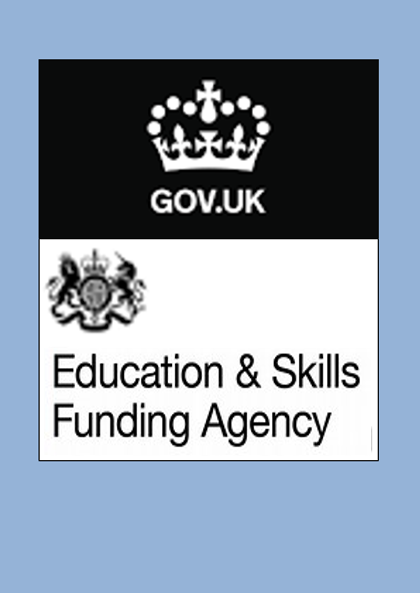
Academy Trust – Schedule of Musts 2023
Alongside the Academy Trust Handbook, the Education and Skills Funding Agency (ESFA) have published a Schedule of Musts for 2023. These are the requirements in the Academy Trust Handbook brought together into one list: the ‘musts’.
It abbreviates these requirements and so cannot be used as a substitute for the full handbook. References to the relevant sections are included, which must be read in full. The tool is an entirely optional resource, and there is no requirement to submit it to the ESFA.
The ‘Schedule of Musts’ is in a spreadsheet format and can be downloaded via the www.gov.uk website via the following LINK

ESFA – Academy Trust Handbook 2023
The Education and Skills Funding Agency (ESFA) have published the new Academy Trust Handbook , which comes into effect from 1 September 2023.
This year the handbook has been sharpened and shortened, and trusts should ensure that they are aware of and apply the supplementary guidance signposted throughout the handbook. It contains several key changes, including:
- related party transactions: an increase in the threshold beyond which ESFA approval is required for related party transactions from £20k to £40k
- annual reporting: removing the requirement for explanations in annual accounts when holding fewer than 6 board meetings per year
- budget setting: providing an additional month to submit annual budget forecast returns
- budget monitoring: providing more discretion in the distribution of management accounts
- sustainability: confirming that salary sacrifice schemes can be set up for electric vehicles, in most cases without our approval
The ESFA have summarised the changes to the 2023 edition on page 7 of the guidance. The Handbook can be downloaded via the www.gov.uk website via the following LINK

DFE – Suspension and Permanent Exclusion Guidance 2023
The Department for Education has updated the Suspension and Permanent Exclusion Guidance which comes into effect from 1 September 2023.
The guidance is for maintained schools, academies and pupil referral units in England. The updates are in addition to those already established in the 2022 guidance and reflects the government’s ambition to create high standards of behaviour in schools so that children and young people are protected from disruption and are in a calm, safe, and supportive environment that brings out the best in every pupil.
This guidance provides schools and other bodies involved in this process with information so that they can continue to use suspensions and permanent exclusions appropriately. In addition, specific changes to the legislation governing the disciplinary school suspension and permanent exclusion process have been made and so changes have been made to the guidance to reflect this. The following is a list of updates:
- New guidance and amended regulations about a headteacher’s ability to cancel an exclusion before the governing board has met to consider whether the pupil should be reinstated. This practice is sometimes known as withdrawing or rescinding an exclusion. If this occurs, the parents, the governing board and the local authority, must be notified and, if relevant, the social worker and VSH. Further information on other actions that should take place following a cancelled exclusion is set out in paragraph 13.
- Governing board reinstatement meetings and IRPs can now be held via the use of remote access (for example, live video link) for suspension and permanent exclusions if requested by the parents, provided certain criteria are satisfied. Meetings held via the use of remote access should not be a default option and face to face meetings should always be encouraged. Further information is set out in Part Eleven.
The revised guidance can be downloaded via the www.gov.uk website using the following LINK
Collecting and Publishing Board Diversity Data
The DfE (Department for Education) has updated guidance on what maintained schools and academy trusts need to publish online.
To help boards ensure they are reflective of the communities they serve, the DfE is encouraging schools and trusts to publish diversity data on governing and trust boards. The DfE state “Diversity is important, and we want boards to be increasingly reflective of the communities they serve. We encourage schools to collect and publish board members’ diversity data. Information must be widely accessible to members of the school community and the public. Board members can opt out of sharing their information, including protected characteristics, at any given time including after publication.”
The guidance can be downloaded directly from the ww.gov.uk website by selecting the following links:
What maintained schools must or should publish online
What academies, free schools and colleges must or should publish online
Bolton Governance Services through the NCOGS (National Co-ordinators of Governance Services) national network have provided an example on how this information might be presented which can be downloaded via the ‘download’ button (to the right).
Whilst there is no prescriptive way to collect diversity data from volunteers, the NGA (National Governance Association), have produced a diversity indicators form that can be used by governing boards in all types of school structure to gather diversity data on their membership and use this as a basis for discussion and action. This can be downloaded directly from the NGA website via the following LINK
Virtual School Conference 2023 – Working Together and the Power of Relationships
Bolton’s Virtual School are delighted to invite educational professionals, including Nominated LAC Governors and Trustees, to their summer term Virtual School Conference. The event will discuss the impact of the Virtual School over the last academic year, updates from the Department for Education and look at how we can continue working together to raise the aspirations of care experienced children in Bolton.
The marketplace will open at 12pm providing an opportunity to speak to a range of providers who can support children with a social worker.
This event is open to any education professional supporting Bolton’s children with a social worker, including nominated LAC Governors and Trustees.
Bolton’s Virtual School is committed to raising the educational attainment of all looked after children in the Borough, and in doing so reduce any existing progress gaps between our looked after children and their peers.
A copy of the agenda may be downloaded below and you can book your place on Eventbrite by selecting the following LINK
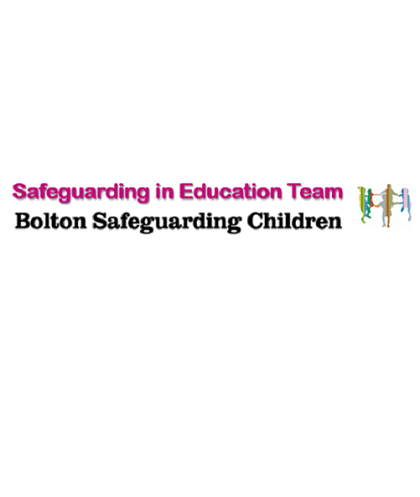
Safeguarding- Section 175/157 Audit of Educational Settings
As part of a co-ordinated approach, from this year, the Bolton Safeguarding Children Partnership are conducting the Section 175/157 audit on behalf of Bolton Local Authority. This comprehensive annual audit enables your school to capture important information about your safeguarding arrangements, as well providing assurance to the statutory safeguarding partners.
The 175 self-audit is being carried out via a dedicated online self-assessment platform, with each setting across Bolton asked to complete the audit. Detailed supporting information including S175/157 completion guidance, the self-assessment audit link and a variety of frequently asked questions is available via the Bolton Safeguarding Children Partnership website. The self-audit will enable schools and academies to identify and develop an action plan to share with governors and trustees.
The 2022/23 self-assessment is running across the Spring Term 2023. It opened on Monday 9th January 2023 and will close at 1700 on Friday 14th April 2023.
For any questions or queries please contact the Safeguarding Education Team via email SET@bolton.gov.uk or telephone 01204 337472

SEND Review Government Consultation Response
On 2 March 2023, the Government responded to the SEND Review Green Paper Consultation by publishing its SEND and Alternative Provision (AP) Improvement Plan: Right support, right place, right time. The consultation highlighted very real concerns and a need for change in a system that is hampered by inequity, difficult and lengthy processes, and funding shortfalls. The SEND and AP Improvement Plan outlines the first steps that the government will take in addressing the issues raised. The plan sets out a roadmap to transform the SEND and AP system:
- Establishing a single national system that delivers for every child and young person with SEND so that they enjoy their childhood, achieve good outcomes, and are well prepared for adulthood and employment.
- Giving families greater confidence that their child will be supported to fulfil their potential through improved mainstream provision in their local setting.
- Ensuring children and young people with SEND who do require an Education, Health and Care Plan and specialist provision get prompt access to the support they need, and that parents don’t face an adversarial system to secure this.
- Strengthening accountability across the system so that everyone is held to account for supporting children and young people with SEND.
Many of the proposed changes will be trialled initially, with nine regional partnerships, covering around 30 LA areas, piloting the changes before they are finalised, meaning it will potentially be 2025 (at the earliest) before legislation is decided upon.
The Plan, and NASEN’s (National Association for Special Educational Needs) response to it, plus a range of role-specific ‘What you need to know’ guides along with other links to useful supporting materials may be accessed by visiting the NASEN website using the following LINK
Sue Cornwell, Head of Service with Children with SEN, will be proving governors and trustees with an update at the Partnership Forum to be held on Monday 22 May 2023 – bookings via the following LINK

DfE Press Release: Careers Boost for Young People
The DfE issued a press release on 5 January to announce that Primary school pupils will benefit from careers support and a change to law will give more young people access to advice about technical education. The summary of the changes are as follows:
- New careers programme will open primary school children’s eyes to the world of future job possibilities and challenge stereotypes
- Young people to benefit from new law so they learn about the variety of exciting career routes available to them including technical routes to jobs as well as academic
- Part of government’s drive to make sure all young people get high quality advice to make informed choices on the skills needed for a successful career
Primary school pupils are to benefit from a new careers programme that will encourage them to think about future jobs early, whilst nurturing aspirations and challenging stereotypes.
The full press release van be viewed via this LINK
Careers Guidance and Access for Education and Training Providers
The Statutory guidance for schools and colleges on providing careers guidance “Careers guidance and access for education and training providers” has also been revised. This guidance can be downloaded directly from the www.gov.uk website by following this LINK







